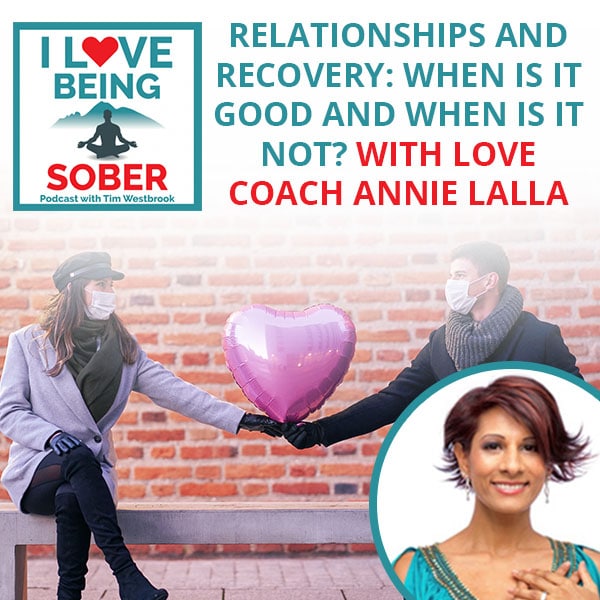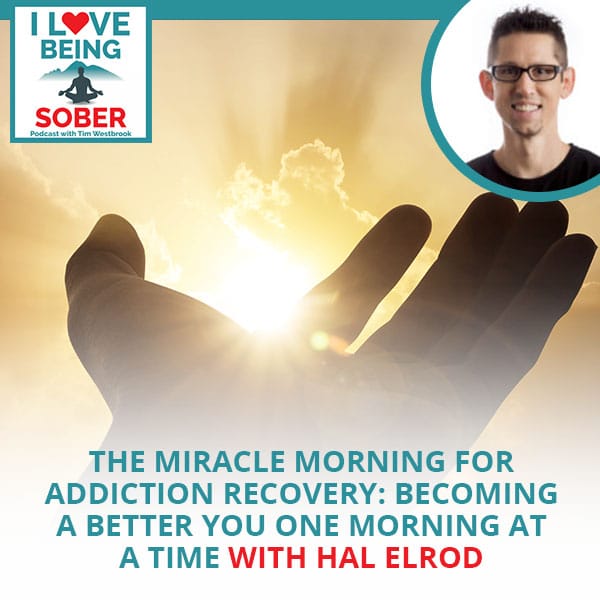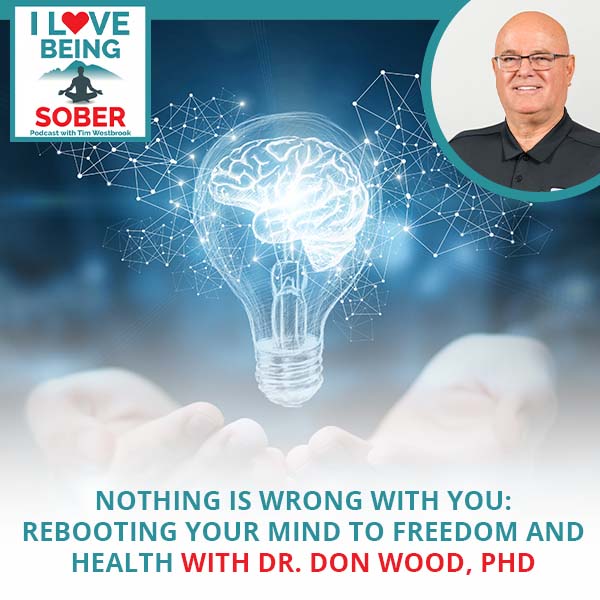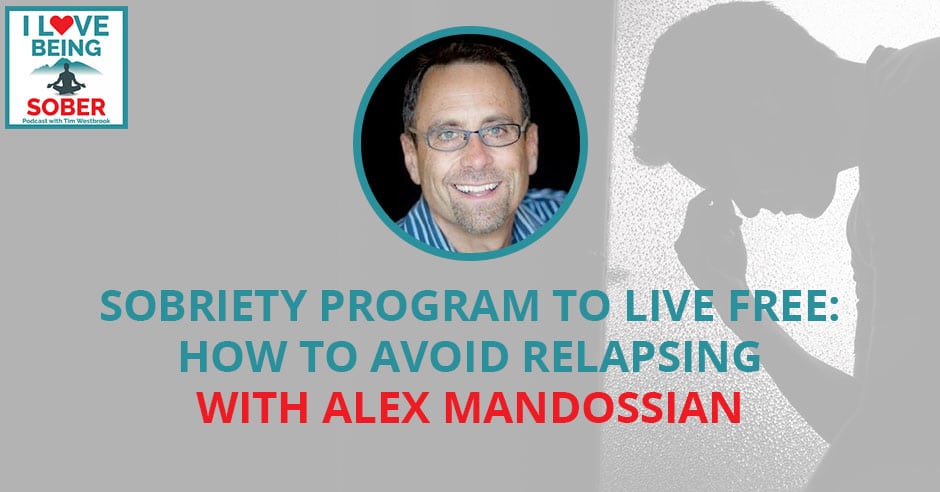
Relapsing is not a part of any sobriety program because the goal is constant recovery. Tim Westbrook, MS welcomes his long-time sponsee, Alex Mandossian, the CEO at Marketing Online and a funnel marketing and conversion coach. Alex shares how he’s been sober for 11 years when he started sliding back to excessive drinking because of the pressure of career and family life. From that experience, he learned the importance of self-awareness. When you’re not self-aware, you get yourself in trouble no matter how intelligent you are or how much money you’ve made. If you want practical strategies for avoiding relapsing, this episode’s for you.
—
Watch the episode here
Listen to the podcast here
Sobriety Program To Live Free: How To Avoid Relapsing With Alex Mandossian
I’m the CEO of Camelback Recovery here in the always sunny and sober Scottsdale, Arizona, where my team and I have helped thousands of people on their path to recovery over the course of many years. We started this show because there’s so much misinformation about addiction treatment, mental illness, and recovery in general. There’s so much more to recovery than going to inpatient treatment, seeing a therapist, and going to twelve-step meetings. All of those things are important, and AA saved my life.
However, to find long-term recovery and live happy, joyous, and free, there’s a lot more to it than only stopping the drinking, the drugs, the sex addiction or any addictive behavior for that matter. To live a new life, a person needs new healthy lifestyle habits, amongst many other things. Typically, this includes new eating habits, new sleeping habits, new exercise habits, new hobbies, new interests, new friends, self-care becomes a priority, and the list goes on. Those are the types of things we have talked about here on the show.
Since 1993, our guest has generated nearly $417 million in sales profits for his marketing students, clients, and joint venture partners on six continents. Author Harvey Mackay acknowledges him as the Warren Buffett of digital marketing because of his unique ability to make money for his students, clients, and JV partners. He has shared the stage with Richard Branson, Larry King, Tony Robbins, Marianne Williamson, Robert Kiyosaki, Suze Orman, Mikhail Gorbachev, the Dalai Lama, and two US presidents.
As a virtual trainer with over 22,000 hours of training time and nearly 4,800 interviews, his business lifetime goal, along with his colleague, Jack Canfield, is to influence training over one million other trainers by his 77th birthday but we are not going to talk about our guest’s business strategies or his accomplishments on this episode. We are only talking about his sobriety strategy and how to handle slips and relapses. Alex Mandossian, welcome to the show. I’m so glad to have you here.
Thank you, Tim. I love that introduction, especially if my mom could read to it because she still doesn’t know what I do but she knows about my recovery and she’s proud of it. We have that in common.
We are going to dig right into it. We are going to make this a quick show. Give me the quick version of your path to recovery.
I came in because of a friend who hired me back in 1992. We were in Manhattan. In going to meetings and lots of meetings, the old-timers poke fun at me when they hear me say this but I would be categorizing myself as a high-bottom drunk. I wasn’t vomiting in the gutter. I would wake up with a hangover. I would be upset about what I did the night before, and the behavior wasn’t sustaining long-term health or remaining happy, joyous, and free. I embarrassed myself in public many times, and so because my friend was in the program and he was then my boss, I would go to meetings with him.
In Manhattan, you can walk from one meeting to the next, and it’s almost 24 hours. It was a haven. Everyone walks there. It’s about 12 miles by 3 miles wide. We were in Midtown, and it was a great experience. I came in in 1992, got a sponsor. The program wasn’t only about alcoholism. It was, for me, a way to live. There was a new language, a new community. Many communities, depending on the meetings.
[bctt tweet=”When you’re not self-aware, you get yourself in trouble no matter how intelligent you are or how much money you’ve made. ” username=””]There was a new role model, which was my sponsor, who did it for himself more than he did it for me. There’s an old story with Dr. Bob and Bill W that if something about the history of AA that is also held to account. I stay sober, meaning no drinking, no drugging until 2003. We moved to Northern California, and I thought I had graduated.
How long did you stay sober that first time?
Eleven years.
Sober for eleven years, then you moved to California.
I heard all the language and listened to all the stories. Probably, in the beginning of 1990 and 3 to 4 meetings a week, sometimes 5, if I had a bad week, maybe 7. Sometimes, twice a day because it was so available. You don’t even have to drive. I thought I graduated. I didn’t look at it as a relapse or a slip. I looked at it as ascension like high school to college or college to the work environment. I didn’t think anything of it. I didn’t go back to drinking or drugging. I would have maybe a glass or two of wine. My then-wife, Amy, had no challenges with drinking, and we had two kids, Gabriel and Breanna, in 2000 and 2002. We lived in Northern California.
When things started to get heated with work, stress, relationship in the marriage, very anxious and worrisome, that’s when I started to drink and drug again. That was only to numb out. That was around 2007. That continued for about five years until it escalated. I did go to rehab in Napa Valley for a week. My favorite thing, Tim, because I know with sober living that you run, the people come out of rehab and go into your homes to have a three-point landing after they leave. More of an indoctrination back to life.
That one week, I was so grateful that I wasn’t everyone else because the meth and heroin addicts would be coming in. I’m thinking, “I’m not that bad. Maybe I can drink and do recreational drugs from time to time.” When I came out, I didn’t do that. I stayed sober for five years. I didn’t go to meetings. That was the mistake because I knew the language but I wasn’t locked into the community.
Looking forward to a homeroom, having a sponsor, you are my sponsor, that’s why we are here and leave you a message on our iPhones. You say, “No, we need to talk now. Even if we miss each other, at least we need to talk. That’s how I learned it and how we are going to do this thing.” In 2014, I had a drink in San Diego. I didn’t look at it as a slip again. It’s only the way I defined it. I didn’t look at it as a relapse, and that continued all the way through 2020. In 2020, I stopped. I started going to meetings.
You had eleven years’ worth of sobriety. We always talk about environment always wins. Although you didn’t go back to drinking immediately, when you moved to Northern California, you weren’t plugged in. You weren’t going to meetings. You didn’t have a homegroup. You didn’t have a service commitment. You didn’t have the community.
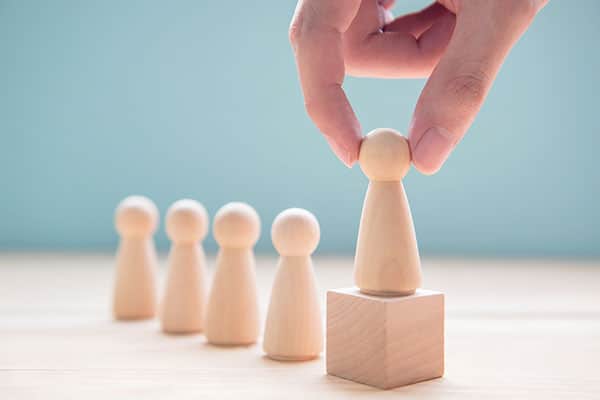
Sobriety Program: There was a new language, community, and role model.
You didn’t have your guys or your people there to support you on your path, which, as they say, if you spend enough time in the barbershop, you are eventually going to get a haircut. If you are spending enough time in life, in general, around the average everyday person who’s not an alcoholic, eventually. For you, it took five years. You held it together for five years, and you probably weren’t a full-blown back at it right away.
No, I wasn’t, but then it escalated. Beyond not getting plugged in, I didn’t see the meaning of getting plugged in. I didn’t act as though my life depended on not drinking. “Don’t drink for today.” You hear that all the time in the rooms. Hopefully, for an hour in the rooms or 2 hours, if you go to 2 meetings, you are not going to drink during that time, get plugged into the community, having the sponsor.
It’s a lot harder to lie, steal and cheat when you are plugged in like that. I didn’t attach meaning to that. I thought I had a disease. It’s now cured. There’s no vaccine for this but I haven’t done it for a long enough time, so I will go back to normal but normal doesn’t work. Through college and high school, I thought the whole purpose of drinking alcohol was to get drunk.
I didn’t see what’s the pleasure. I never understood people who only drink half a beer in a restaurant. It’s like, “What are you thinking? You are wasting all of that numbness that could be doing something for you.” It’s only the meaning I attached. That’s the issue with slips and relapse. They are the same thing. I could rationalize and say relapse is much more major and a lot more happening but it’s the same thing. I went back on my personal commitment.
I will tell you. Every step, tradition, prayer, all the language in everything I believe, is wrapped around self-awareness. When I’m not self-aware, then I get myself in trouble. No matter how intelligent I am, how much money I have made, I have made money because I have an addictive personality. As with other alcoholics, they know how to produce. They are great salespeople. They are that part of society that they are very productive but then they are destructive as I am, anyway. I will speak on my behalf because I have graduated and I want to be normal.
I like recovery to be normal, and that’s the only way to stay sober. Through self-awareness, if recovery is the normal, not the new normal, that is normal knowing what it has done by not being that way, then that’s the way to be. I didn’t want to be the slip guy. I didn’t have 30 years of sobriety. I didn’t want to be the relapsed guy but that’s what I share in the rooms. To me, the 5 or even 11 years wasn’t as much of a challenge for me as realizing that I never graduated from this program. If I could offer anything to anyone watching or reading, there’s no graduation. You keep going, and it’s an honor to be in it.
How do you define a slip versus a relapse?
I did this for you. I wrote this question for you because it’s the exact same thing. However, a slip, to me, 2 or 3 days, a relapse, ongoing, hangover, gutter drunk, it’s the same thing. Relapse and slip go back on the self-awareness of a commitment of not drinking, staying sober, and not being true to the program. The beauty of this program is it doesn’t shame or blame you.
[bctt tweet=”Helping another person will help you stay clean and sober. ” username=””]We do enough of that ourselves. It allows you back in. My slip, you invited me back in. It was like another challenge, and here we go, we are calling each other. I’m calling you every day. Not only leaving messages. Of course, correcting me and saying, “No, we need to talk,” besides going to meetings. A slip and relapse are the same things. It means drinking and going back on the commitment.
What are you doing moving forward? What are your strategies to prevent another slip or another relapse from happening again in the future?
The first thing is bringing meaning to the program, I’m in it for life. I’m a lifer. It’s not that I’m in jail. I’m free. I’m out of jail. Felons and drug addicts, alcoholics, there’s a term in the medical field. It’s a fancy word called recidivism. A recidivist is someone who backslides. I’m a recidivist. Eleven years, recidivism. Five years, recidivism. That means backsliding and going back. A felon goes back to jail. A drug addict starts using again. You have stats on this show. The stats of people making it to 1 year until 5 years and so on.
Recidivism, also in business, if a student or a client doesn’t do the work, they are backsliding. If you are a parent, your kids are not fulfilling their agreements or parents are not fulfilling agreements with their children. I’m redefining that there is no graduation to this program. I’m in it for life. It’s fun. The community is supportive. We are in a group where we are texting our gratitude with our next level of gratitude, which is a bunch of guys.
I love men’s meetings. I go to two Co-ed meetings a week but I love going to men’s meetings because it’s, for me, I get to share things that I feel more comfortable sharing with other men. It’s like free therapy. The costs may be $1 to $5, depending on what I have in my wallet and fulfill one of the traditions. I’m redefining what the program is both secretly and now publicly.
You mentioned the stats. The stats are most people relapse. More than 90% of people relapse within the first year. People that make it to a year, statistically, have a 67% chance of making it to five years. The people that make it to five years have an 85% chance of making it for life. What I have seen is people that have 8, 10, 17 years get of long-term sobriety, and they relapse. It’s like, “How did that happen? That person appeared to have it all together.” It’s staying connected.
I have heard many people say this, and this may have happened to you. It’s like, “I’m good. I’ve got it. I’ve got this figured out. I have been sober for eleven years. I don’t need to go back,” but this is the thing. The thing is that being of service and helping another person, so even if you don’t personally need it, even if I don’t think I personally need it, I’m going to go because I’m going to help another person. By me helping another person and being of service, that’s going to keep me on the path. That’s going to help me stay clean and sober.
You are talking about sponsorship basically, also, being of service inside the rooms. Having a homegroup is very important. A lot of people say that to stay connected. I will tell you why I relapsed. I can only speak on my behalf and my lack of self-awareness. I have never done an interview like this before. I’m sure people are going to read this interview who don’t even know I’m an alcoholic and drug addict. They are going to go, “I never knew.” Many times, that’s my favorite thing that happened. There’s a new client that’s coming onboard with my business. He asked me if I was a friend of Bill’s because I was talking some of the languages. Other alcoholics and drug addicts can sniff that out. They are like bloodhounds.
He said, “Are you a friend of Bill’s?” I said, “I am.” All of a sudden, that connection was stronger. The reason I know I have slipped and relapsed is not only because I felt I graduated but I isolated. Lying, stealing, and cheating, yes, but there’s one more word, rationalizing. I started to rationalize, “I’m supporting my kids. I’m the breadwinner. I need more time. I don’t have the 30 minutes before the meeting and 30 minutes after meeting for coffee.” That’s two hours out of my day. I’m awake 16, 17 hours. I have to let that go. If it’s 2nd or even 3rd, it doesn’t work. It’s got to be first. Everything has to be, it doesn’t have to be but for it to work, the whole day, work included, I believe it has to be centered around the program. It’s the number one priority.

Sobriety Program: The beauty of this program is it doesn’t shame or blame you.
Without that, I’m no good as a dad, as an ex-husband, as a partner, as a friend, as a sponsee. I’m no good as someone of service, whether it’s for Camelback Recovery or in the room. Putting the program first, becoming a sponsor when enough time has been put together, getting sponsored, having a homeroom, as you said, it’s about connection. Why did I relapse? In my mind and my heart, it’s because I slated. The moment I start isolating, and you catch me because it’s easy for me to do because I’m an introvert. I know how to isolate quite well then rationalize it.
The moment I start doing that, that is the first step to slipping. I like to think through the relapse and the slip, not through the drink because I don’t crave alcohol physically like I have heard in the rooms a lot. I look at it as a way that’s very convenient to numb out. Drugs aren’t as convenient. I don’t have a dealer. I don’t have access to my favorite drugs but alcohol is convenient. That’s what I have found to do. It is a mental disorder. It’s about self-sabotage. I would even put it in the category of self-loathing for me. The times that I disliked myself, that was a way to separate me from me.
The non-slip and the non-relapse journey are to think through what will happen afterward. I don’t want to go down that path. It’s you and others who know my situation now. That scares me. I like to be in fear that way. Not in other areas but in that way. I like to fear it because I always hear, “The addict is doing pushups waiting for me anytime.” It’s like in Pinocchio, “Come on. Let’s go to this island.”
I heard you say self-loathing, which when I hear you say self-loathing, feeling sorry for yourself. That makes me think of a victim. That’s the victim mentality versus being responsible. If you are in that victim mentality, you are more likely to take a drink.
Not only likely. It’s 100% because of that mentality, knowing what some of the options are, and because I have found some of the options. For example, I hope this makes sense to someone watching or reading. I hope this is useful. It is useful for me. I’m doing it for me as much as I’m doing it for anyone else reading. I have been to Tanzania in Africa. They have lions, and there’s a tribe in Tanzania that’s known to kill lions with their bare hands if the lion has eaten another human in the village. I happened to be there when a lion had attacked a human.
I asked the chief when I was there. This was years ago. I said, “Why do you have to kill the lion?” He’s the chief, very polite. He goes, “Mr. Alex, imagine if you are a lion and you are chasing antelope and zebras. You chase him down. You are exhausted. You have all your wives chase them instead, then you get to eat it.” The male lions don’t do any chasing. They bring back their shit, and the meat is tough. The animals and the prey are running fast. They get bucked in the face and all that stuff, circle of life.
He says, “Imagine you have a human. A human doesn’t walk, run very fast, and has the tenderest meat of all.” It’s like a filet mignon to the lion. The moment a lion goes after a human and tastes that flesh, you have to kill it in the village because they will always go after humans. They will never go after zebras and antelope anymore.”
That analogy, as harsh as it may sound, is the same thing with alcohol. I know what it can do and how easy it is to get access to, so that’s no longer an option. I have to be like a lion in recovery, and I’ve got to be a vegetarian. I forgot what movie it was but it was a Shark’s Tale. The shark was a vegetarian, and he’s pining over eating fish.
[bctt tweet=”The most important part of recovery from addiction is living happy, joyous, and free. ” username=””]It’s the same thing with alcohol. It’s like a drug of choice that’s easy to get, especially in the US. Overseas, in Europe, you can’t get it at a 7-Eleven. In Australia, you can’t go into a Circle K and get it. You have to go to a liquor store that’s open at certain hours. Here, grocery store on the side of the street, you can get it anywhere. Plus, where I live, there are bars surrounding me. It’s convenient, and it’s a way to check out when I’m feeling sorry for myself or I go into poor-me mode.
I’m in yoga teacher training now. There was a conversation. One of the people in the class said she didn’t believe that we all had free will. She thought that life is basically like, “Everything is the way that it is. We don’t have free will, free choice.” I’m scratching my head. That doesn’t make sense to me because that means I’m a victim. That leads to me being a victim. That means I’m not responsible for my life. If I’m not responsible for my life, I can blame anything on everybody else.
I’ve got news for her. The reason why we are in recovery is because of free will. If we didn’t have free will, we wouldn’t be in recovery. The Kyron here at the lower third says, “Why relapsing is not a part of any sobriety program. I have heard that relapsing is a part of it. It’s okay.” No, that’s the mentality I had, and now, I’m the relapse and slip guy when I’m sharing.
I don’t want to be that guy. I’m ashamed to be that guy. I feel guilty, which are worthless emotions but I don’t want to be the guy, rather stand up and say, “I’m Alex. I’m recovering alcoholic and addict. I always say recovering and I have 31 years.” That’s what I would rather say but I can’t because I haven’t earned the right to say it.
Maybe that was my fate with free will because I get a lot of feedback at meetings that you are at. People thank me when you are in and say, “I don’t want to be you. I don’t want to be the relapse and slip guy.” Even though, at a time in between. If I’m doing something for someone else who could be suffering, then I feel like I have found my brand within Alcoholics Anonymous.
I’ve got another question for you here. You are a pretty smart guy. You are successful on paper anyways. Do you think it’s harder for a guy like you, for a person like you that’s smart, successful, has his life together, to stay clean and sober than a homeless person on the streets?
It’s equal but because you have labeled me as smart, I am street smart, too. I grew up with very little, and I made it. I don’t have any role models in my family. No one is a drunk, a drug addict or an alcoholic in my family, both sides. I’ve got to have that distinction. My kids don’t express any of that. However, I would say the street person or someone who is not as accomplished, let’s say in business because I have more access to money. I have more access to sneaking. I have more ways to lie and to steal time. Not to steal things. I stole a Big Red in the seventh grade, and my mom grounded me for two weeks. That’s the only thing I have ever stolen in my life.
I was never a thief but stealing my dignity away, my fidelity to someone else and betraying them with my word and lying to them. Cheating on that is not always with intimacy. Being successful and we have a mutual friend that says, “Alex, because you are smart and successful, you may find it harder to be sober,” I find it hard to be sober if I disconnect. I find it hard to be sober if I isolate. I find it hard to be sober if I don’t remain humble if I stay in hubris, which is arrogance.
The guy on the street or the gal on the street, there’s someone I see every day, and I buy her a sandwich at Circle K, the same sandwich, same everything, and she still on the street. I don’t know if she’s a drunk or not but that’s my act of service when I’m coming back from my F45, which you are well aware of. It feels good to do that. She’s also my icon of what not to be because she’s out there.
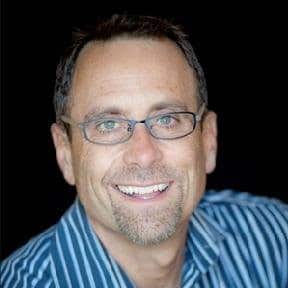
Sobriety Program: The reason why we are in recovery is that we have free will.
In the winter, it’s a little cold here, even though we are in Arizona. In the summer, it’s 115 out there. Even in the shade. It’s pretty tough. I’m grateful I’m not that person. I do what I can to feed her. I never see her with any alcohol. I don’t know what her story is but she has my grandmother’s name, Esther. Somehow through providence, that’s one way of acting of service. It’s easier to outsmart myself because I’m labeled as smart or successful because people won’t find out.
It’s like a corrupt politician. People may not find out or don’t know any idea how that person is or someone in Hollywood. Anyone who has the ability to hide who they are. You can’t hide in any recovery program, in my opinion. You can’t. In your sober living homes, you can’t hide. You’ve got to make your bed. You’ve got to go to breakfast, lunch, and dinner. Hopefully, it’s communal. Every once in a while, Alex comes in with Tim. We do a little presentation on a Sunday. Sometimes we always hug, then we have meetings on Friday. You can’t hide. If you do or if I do, I will speak in the first person. It’s going to lead to trouble. Not right away but it will lead to trouble.
Everybody knows if you are lying. You think nobody knows. You think you can hide but you can’t hide. Going back to being smart and successful means you are a great salesperson. Possibly, you can sell yourself on your own ideas.
That’s the problem. That’s a source of, hubris and arrogance. I will flip it. Tim, you are smart. You are an A-student. You can sell. You are a great referrant. You for you refer a lot of people to high ticket communities and groups that we belong to. You are in the same boat I am, and you have done it, ongoing without a slip. You are a good example for me to live by and is my sponsor. I told you my story without the most previous slip when I’ve first got to Arizona, and things were going great. Things are still going great. It’s only a little chink in the armor.
Is there a question that you wanted me to ask you that I didn’t ask?
What’s the most important part of your recovery to living happy, joyous, and free, Alex? Are you ready?
I’m ready.
I love the economy of not asking the question again. We have a course talk less, sell more. You do well at that. The most important thing is my morning ritual. Nothing even comes close. Not my nighttime ritual before going to bed, not getting a good night’s sleep. All those are important but the morning ritual, how I indoctrinate myself into the day, starting afresh. I’m not always waking up in a great mood. Sometimes I wake up tired. Sometimes I don’t get enough sleep but when I wake up, I have a ritual. Some are business. A lot of, is physical early in the morning. By the time 8:00 AM rolls around, I have done more than a lot of people do all day.
[bctt tweet=”Pain is inevitable, but suffering is optional.” username=””]That makes me feel very productive. Not in the comparison of it but knowing I’ve got momentum. Alcohol and drugs don’t even pop in my mind when I’m immersed in that morning ritual. I wake up, and there are these like little mini plastic spikes that yoga teachers give to their students. Sometimes I stand on those barefoot. It wakes me up.
I do Wim Hof breathwork, which you introduced me to but I do know when Wim Hof through business and his story. It was amazing. I do that, and I write copy for half an hour, 33 minutes, and 33 seconds because that’s what my mentor did. I wake up very early. I go to F45. F45 is functional fitness in groups.
That’s my group interaction. That’s my meeting that’s physical. I’m fit like you, and it’s fun to go there. That’s 45 minutes. Saturdays, one hour. On the way back, I buy a sandwich for Esther at the Circle K on Camelback. I come back home. I shower. Before I start my day, I do a third-step prayer. I put on some binaural music. I don’t know if I believe it or not but the placebo effect works. Lower stress, be more focused, and all that shit. I listen to it. There are no lyrics. I start planning my day and own my morning.
When I slip or when I slipped, I don’t own my morning. It’s frenetic. I’m out of the zone. I’m all over the place. I’m not on these rails of moving forward. Not rails of drugs but rails of advancing and moving forward. I also plug into a group on a text called Next Level of Gratitude. I do four meetings a week. That’s part of the regimen. You and I meet on Wednesday mornings. We do step work at a Starbucks, and then we go to a men’s meeting right afterward. That’s a fun time too because I get to connect with you.
When I stopped doing that, which I did, prior to the slip, even though I went up North to Canada, that set me up. We didn’t talk about it but there was a slip before the slip. There was a relapse before the relapse. In sales, they call it buying signals. Those are the slip signals that you can be very aware of. When I stop being self-aware, I’m not saying anything that is new to anyone. I’m reminding you of something that you already know, whether you are drinking now and reading or you have been sober, veteran or newbie, it doesn’t matter. You know this is only a matter of applying it and staying connected and not isolating. That morning ritual, I can’t think of anything more important.
You have the routine, and it’s great. It’s easy to continue doing the routine, doing all the things, and checking the boxes when you feel like it. As they say, “It’s when you don’t want to do it, is when you need to do it the most.” When you don’t want to call your sponsors, that’s when you need to call your sponsor. When you don’t want to go to a meeting, that’s when you need to go to a meeting. When you don’t want to journal and meditate, that’s when you need to journal and meditate. When you don’t want to go to the gym and do the community fitness class at F45, that’s when you need to do it.
I have never shared this with you. Hopefully, you will like it, and anyone reading or watching will like it. My sponsor in Manhattan said, “The difference between a child and an adult is an adult does things, especially a parent. An adult or a parent does things when they don’t want to do them. A child doesn’t do things when they don’t want to do it.” I’m regressing back to childhood when my addict is taking over. It’s like the little devil on the shoulder saying, “Let’s go back to elementary school. You can do whatever the fuck you want.” I’m sorry for swearing.
It’s like, “I don’t have time. I’m busy. I’m successful. I have some new clients. I have a copy that I need to write.” You can come up with all of these reasons why you can’t go back and do the little things that help you stay clean and sober.
Also, I have found that when you tell on yourself, when I tell on myself when I’m in that zone, it’s hard to stay there. Who would I tell on myself to? You. You are the safest source for me to tell on myself, and I do from time to time when I sense it coming up. If I don’t sense it, you are kind enough to remind, nudge, and poke me in the ribs. I know that it comes from love. I don’t think I have ever resisted you. You are like, “Call me. We need to talk. Don’t leave messages,” which is creative avoidance. The recipe for not wanting to do something is not to look at the whole progression of everything that’s going to get done in the morning, at night, in the afternoon.
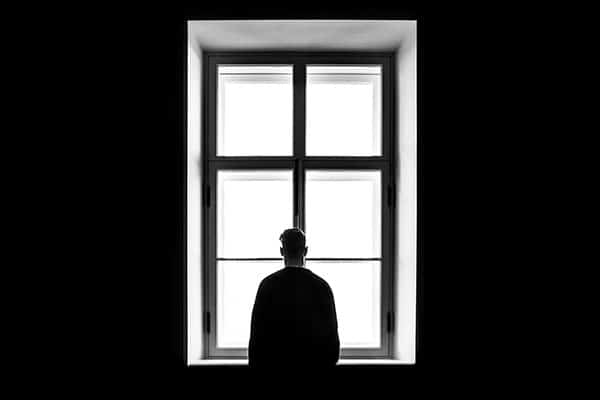
Sobriety Program: If you disconnect and isolate, you’ll find it harder to be sober.
What’s the next thing? Let’s build momentum on that. My next thing is to get my butt in the car and go to F45. Once I go to F45 and have the energy of the people around me, I don’t have to go all out. I can leave something on the floor and not go all out like I’m used to doing because that’s who I am. That shows up in other ways. I could go through it, and I will feel better getting back in the car, going back home, and getting that sandwich for Esther.
If you look at the next thing, then when you don’t do the next thing and decide to say, “No, that’s not for me. I’m not going to do it now,” watch what happens. If you are reading this, chances are there’s a good reason you won’t do it the next day either or the next, and then that is the slip before the slip, the relapse for the relapse. If you can tell on yourself immediately, that’s happy, joyous, and free.
That takes being self-aware to know and to reflect and say, “I’m not going to do that again.”
One final thing I learned is that pain is inevitable. Suffering is optional, so I don’t want to suffer. I don’t mind being in pain and doing things I don’t want to do but I don’t want to suffer. That’s why I have redefined what the program means to me.
Alex, thank you so much for joining us. How can people find you if they want to find and learn more about you?
I have all kinds of websites online. I’m a dinosaur. I have been on since 1995 before Google but the best website would be my podcast site, which is AllSellingAside.com. The reason that’s the best site for anyone reading is that there’s nothing for sale there. I won’t be cyberstalking you after you come in and opt-in. You can listen to any of the podcasts. You look at what the descriptions are. It’s all about business but I utilize story. You will find it interesting if you are like most others who were there.
Thanks so much, and thanks to everyone for reading.
Thanks, Tim.
Important Links
About Alex Mandossian
 The World’s Leading Master Trainer to Virtual Trainers
The World’s Leading Master Trainer to Virtual Trainers
Who Are 100% Committed to Growing their Skillsets, Heart–Sets, Mindsets, and Balance Sheets to Expose their Message to Millions … Faster, Better, and Easier
“Caring is the ultimate competitive advantage.”
Virtual Presenters the world over turn to Master Trainer Alex Mandossian to expose and get more marketing reach for their clear, compelling, and consistent marketing messages … faster, better, and easier.
By demystifying for millions the power within electronic broadcast media such as teleseminars, webinars, podcasts and most recently, Google Hangouts, his followers learn to earn millions on their own terms. Alex’s lifetime goal (along with best-selling author, Jack Canfield) is to become the world’s first “Virtual Trainer” to be responsible for training one million other trainers throughout the world by 2030.
So far. So good.
Since 1993, Alex has generated almost $400 million in sales and profits for his marketing students, clients, and strategic alliance partners on five continents. His colleagues acknowledge him the Warren Buffet of the Internet because of his unique ability to make money for his partners, clients and students.
Clients and luminaries alike say that his training and principles cause greater return on investment and also point of inflection that create legacy. His expertise has been showcased on ABC, NBC, and Fox television, National Achiever’s Congress, Speaker, and Billionaire Mentor Magazine.
His All-In Commitment – mental, emotional, physical, and spiritual – is why he serves as the “marketing therapist” for thought leaders such as Jack Canfield, Get Motivated, Success Resources Seminars, and Harvey MacKay.
Having facilitated over 40 group masterminds over the years, his “what, why, how, and what if” curricula guides eager students to elevate their skill sets, heart-sets, and mindsets, while escalating favourable business outcomes for those who take imperfect action. As he often quips, “Sloppy success is better than perfect mediocrity.”
